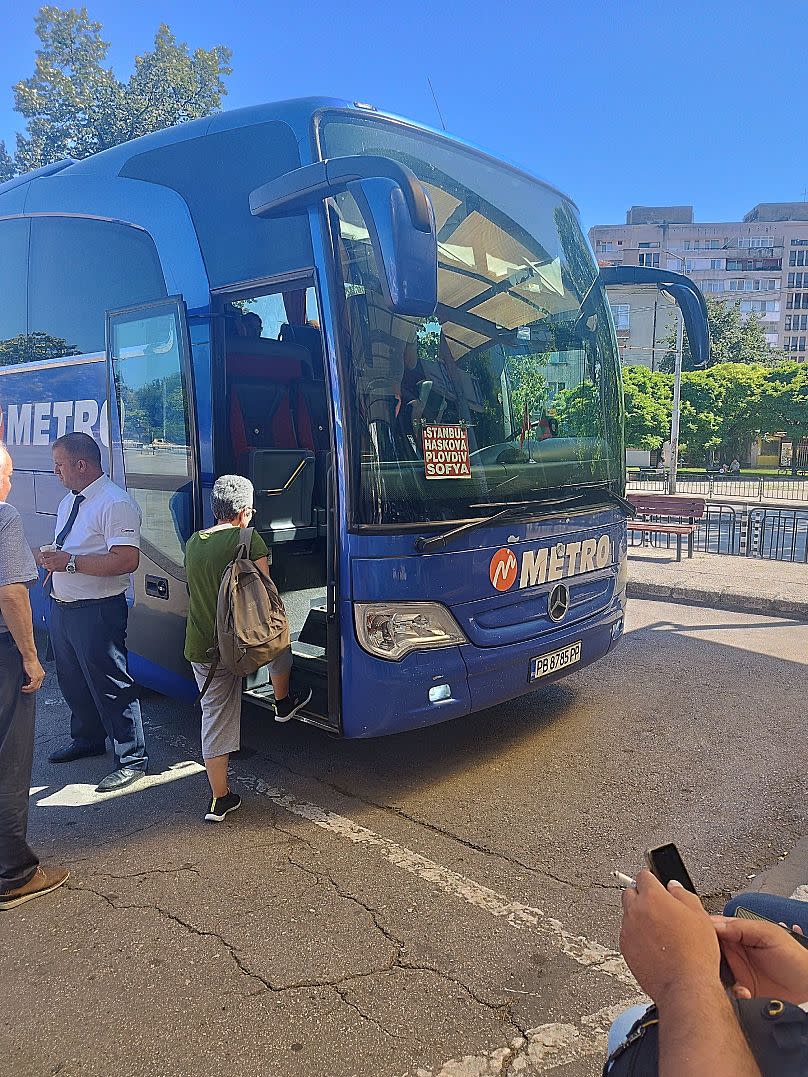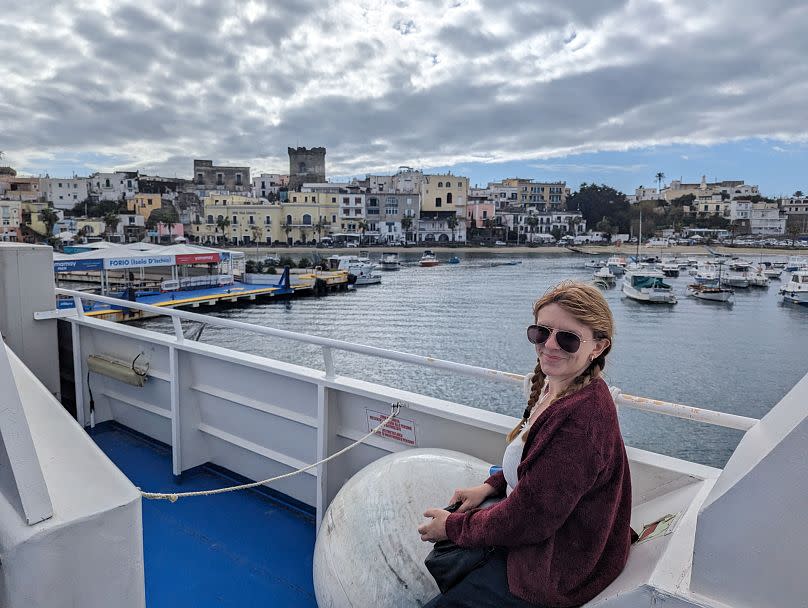Pulling into Venice as the sun rose at 6am, Eleanor Parker was treated to a “completely quiet and beautiful” scene. Moments like this are what make overland travel so magical, but the 32-year-old Briton couldn’t stop to savour it: she had a race to win.
Eleanor was the winner of the inaugural race across Europe using only public transport last year, crossing the finish line in Istanbul 57 hours after leaving London.
Organised by UK-based travel company Lupine Travel, this summer’s race sent competitors training, busing, ferrying, cycling and walking from London to Tirana in Albania.
With climate change requiring us to consider the carbon-intensity of our leisure activities, overland travel is one of the best proofs that life can get more, rather than less fun.
Related
What’s it like to race across Europe by public transport?
Under Lupine Travel’s rules, contestants are only informed of the first checkpoint to prevent too much pre-planning. On the starting line, they are given a race pack containing further checkpoints to cross off – with requirements like taking a selfie in front of a particular landmark.
100 people took part in the trans-European race last year, with the first leg taking them from London to Paris. Racers had a choice of Munich, Prague or Venice for the second checkpoint; Eleanor opted for the latter partly because it’s a prettier route.
The Eurostar and the high-speed train she took to Geneva were by far the most expensive parts of the race, she says, costing around €300 in total. From there, she opted for buses nearly all the way to Istanbul – a surprisingly smooth experience.
“I really enjoyed the bus experience,” she tells Euronews Green. Buses proved to be faster than some rail lines in eastern European and the Balkans, and were refreshingly reliable especially for a UK traveller.

Sites like Omio and Rome2Rio were her constant companions in tracking down the right bus journeys. Eleanor also emailed bus stations in cities such as Belgrade in Serbia to find out about different routes.
“It seemed a lot more people – and a lot of different types of people – used the buses,” than in western Europe, she says.
A patchwork of public transport connections can strike fear and stress into the heart of Brits, with some “feeling that you’re more exposed or more vulnerable when you’re on a train, or on the bus.” But Eleanor says she had no safety issues, and was even rewarded by the kindness of strangers at various points.
While waiting at a bus station, one woman bought her a coffee and came over to chat. “A woman who was next to me on the last leg bus kept feeding me,” she adds. “People clearly thought I looked tired.”
In return, Eleanor left the woman with her travel pillow so she could run faster to the final checkpoint at Sultanahmet Square, beating her rival by just 60 seconds in a nail-biting finish.
Related
Flight-free travel requires a ‘mindset shift’


Showing people how comfortable, accessible and well organised train travel is across Europe is a key way to promote overland travel, according to the champion.
The resurgence of sleeper trains is also helping, and new bike lane connections – since cycling is such a pan-European passion.
Ultimately, flight-free travel is about changing the mindset that travel is just a way to start and end a trip, Eleanor says.
“For me it’s the best part of the holiday because it’s interesting and requires strategic planning, and you meet lots of nice people,” she says. “And you see so much.”
Eleanor, who works in the humanitarian sector on safeguarding for NGOs, says she has been encouraging her organisation to promote flight-free travel in Europe where possible.
The price of train travel and time involved can be prohibitive for some. Schemes like Climate Perks – from climate action charity Possible – are helping to readdress incentives, so employees are encouraged to make low-carbon journeys.
Related
Eleanor’s top tips for overland travel in Europe
Outside the confines of a competitive race, you can relax into the delights of overland travel, and make some spontaneous moves.
But there are some constants. Eleanor recommends taking plenty of water when travelling by bus, a battery pack, and a little travel pillow. It’s best to travel light of course, and worth checking out data packages for your phone beforehand.
Taking part in the trans-European race has spurred the 33-year-old on to take more overland trips. She recently took a high-speed train holiday from London to Cadiz in the south of Spain – and next time wants to take the ferry a step further to Morocco.
From her home in Hayling Island, next to Portsmouth in southern England, Eleanor has been dreaming of something even more ambitious.
“I’d love one day in the future to – it’s like a pipe dream – but to think about whether it’s possible to circumnavigate the world just using public transport,” she says. “So I’ve been doing a dream plan, but there’s places where you always need to get a taxi service.”
“I think a lot of women are feeling more encouraged to do it on their own now as well, which is good to see,” she adds.

